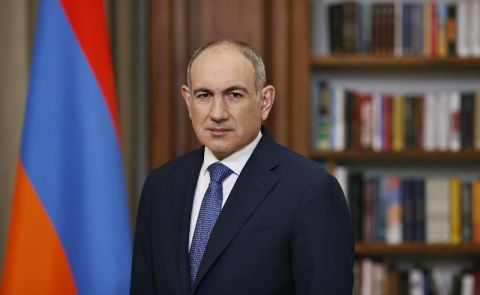
Georgia's Stance During Armenian-Azerbaijani July Skirmishes: Finding a Balance Between Yerevan and Baku
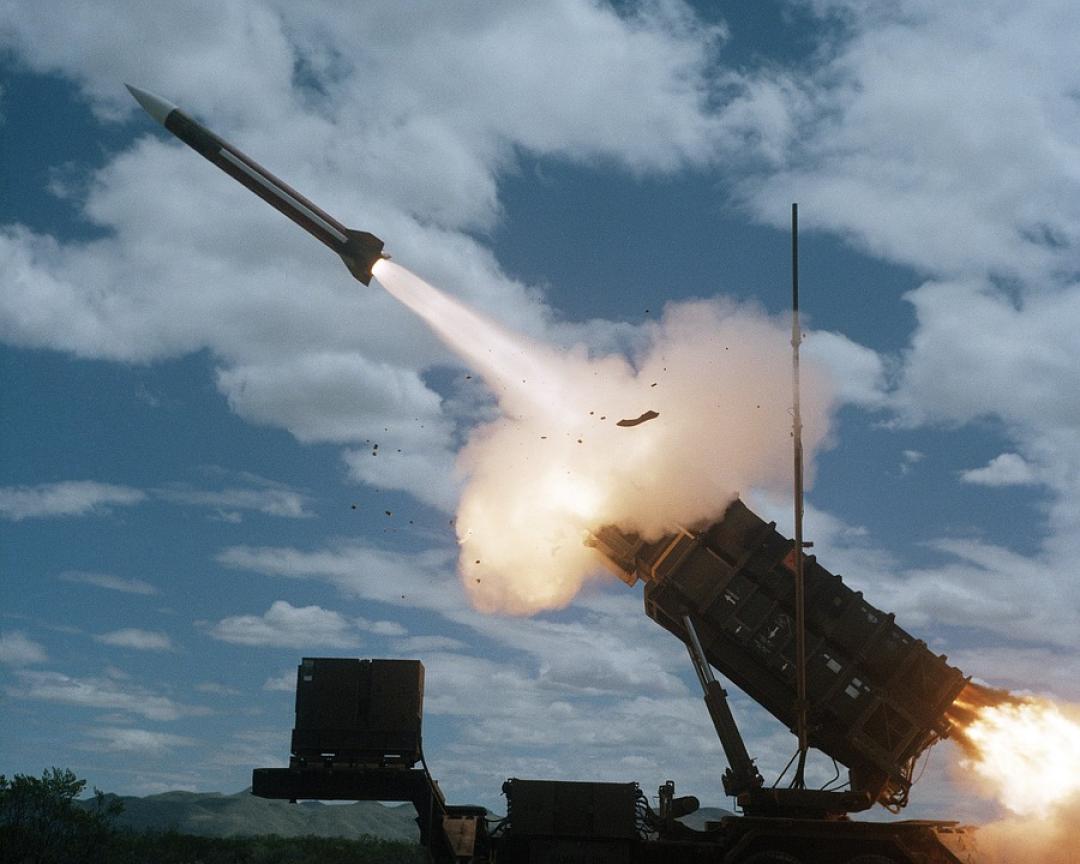
The July 2020 skirmishes on the Armenian-Azerbaijani border have shaken the region amidst the global pandemic. While the two sides have been threatening and accusing each other of initiating the violence, Georgia was trying to hold a neutral position so as not to jeopardize its strategically important relations with both neighbors. The purpose of this article is not to analyze the escalation itself, but rather to shed light on Tbilisi’s position and the public statements made by the Georgian officials in regards to the July events.
Tbilisi officials could not just close an eye to another perilous flare-up of the conflict, the epicenter of which was only a few kilometers away from its borders. The hardest task was finding the perfect balance and maintain objectivity. The President of Georgia, Salome Zourabichvili was one of the first world leaders to react expressing her concerns over the 12-13 July armed confrontation. She emphasized that the armed clashes between Georgia’s two neighbors are “a threat to regional peace and stability” and that “international solidarity and the maintenance of global stability are of paramount importance” while fighting the invisible enemy - the pandemic. In her statement, Zourabichvili called Armenia and Azerbaijan as “friendly and partner countries” of Georgia. Obviously, the Georgian President made an effort to be as objective as possible without favoring or deploring any of the sides. This can be viewed as an absolutely rational demeanor.
On the same day of Zourabichvili’s announcement, the Ministry of Foreign Affairs of Armenia reported about Minister Zohrab Mnatsakanyan’s phone conversation with his Georgian counterpart, David Zalkaliani. Mnatsakanyan thoroughly presented the border situation as of July 13 and underlined the “the unacceptability of Azerbaijan's actions aimed at destabilizing the situation and undermining security in the region.”
Meanwhile, the situation in Azerbaijan became more complicated because of the dismissal of the Foreign Minister of Azerbaijan, Elmar Mammadyarov, an experienced diplomat and the institutional memory of the country’s foreign policy. The resignation was followed by President Ilham Aliyev’s strong criticism at a meeting of the Cabinet of Ministers of Azerbaijan on July 16. Mammadyarov was replaced by Jeyhun Bayramov, Azerbaijan’s former Minister of Education. Already on July 17, Zalkaliani had another phone conversation with newly appointed Bayramov, congratulating him and wondering about the situation on the border. Zalkaliani expressed his hopes that “through the engagement of international mechanisms and of the OSCE Minsk Group, in particular, it will be possible to bring the peace process back on track and de-escalate the tension.” Undoubtedly, the wording of both of Zalkaliani’s calls with his Armenian and Azerbaijani counterparts was chosen in a rather careful and diplomatic manner, without any sharp messages.
The Prime Minister of Georgia, Georgi Gakharia, was silent during the whole active period of the July clashes, as well as when the tension relatively calmed down. He did not appear with any public statement, thereby leaving the entire burden on his colleagues, Zourabichvili and Zalkaliani. Given that the Government of Georgia is in charge of implementing domestic and foreign policy, and the president is mainly a representative role, Gakharia’s silence was a bit odd. According to Gela Vasadze, the director of Regional Programs at the Georgian Strategic Analysis Center, the fact that the Georgian side limited itself only to the president's statement is not surprising at all. Vasadze is sure that Gakharia’s role would not have any leverage on the settlement of the escalation since Georgia does not have any resources to facilitate its resolution.
More disturbing was the statement issued by GUAM Secretariat on its official Facebook page referencing an announcement by the MFA of the Ukraine and critical of Armenian armed forces for allegedly “attacking” Azerbaijan’s territory. This statement was strongly condemned in Armenia both on official and non-official levels. Since Georgia is a GUAM member-state along with Ukraine, Azerbaijan and Moldova, it also did not evade criticism, albeit out of the governmental circles. The opposition Bright Armenia party criticized the GUAM Secretariat for its “provocative” statement and called on the Armenian MFA to demand an explanation. To the question of whether the GUAM statement had initially been approved by the Georgian Chairmanship or not, Gela Vasadze was not sure. He recommended looking for answers from the Secretariat itself or the MFA of Georgia. However, there is no available information.
The tension between Armenia and Azerbaijan dramatically escalated on July 16 when the Press Service of the Azerbaijani Ministry of Defense implicitly threatened to strike the Metsamor Nuclear Power Plant in Armenia. Needless to say, this would seriously damage not only the Caucasus but also the neighboring regions. Therefore, the statement caused anger and harsh criticism in Armenia and was immediately brought into the attention of the international community. The Georgian side again remained silent. Gela Vasadze insists that the Azerbaijani statement was a response to the alleged “threats from Armenia to destroy the strategically important Mingachevir water reservoir in Azerbaijan” (nevertheless, this is only an assumption based on some grassroots-level announcements and there have not been any public statements by the Armenian officials on this). Vasadze approves the Georgian government’s decision for not touching on this topic publicly and avoiding to criticize any of the feuding parties. He specifically notes: “...this is a matter of national interest… that include having good neighborly relations with both Armenia and Azerbaijan...none of them could ever get Georgia on their side, and in case it ever happens, it will be a disaster for the whole region or will cause a massive regional war.”
A few days after the deadly fighting, Georgia was accused of permitting arms shipments to Armenia via its territory. The scandal broke out when the Haqqin.az news website published an article and viewed it as a stab in the back from Georgia. The Azerbaijani vexation was mostly directed at Serbia for supposedly supplying Russian-produced Grad rocket launchers. But the tension towards Tbilisi pushed the Georgian opposition parties to demand an explanation from the government. The next day, Gia Volski, the Deputy Speaker of Parliament and a Senior Member of the ruling Georgian Dream party, dismissed the report categorizing it as “a rumor which was manipulated by the opposition groups in Georgia.” The Georgian MFA also hurried to officially refute the information, underlining that it was “an attempt to overshadow long and friendly ties between Georgia and Azerbaijan.” Interestingly, Prime Minister Gakharia also made a statement saying that it was “simply unverified information.” After this statement, the tension seemed to calm down. No doubt that the accusations caused anxiety among Georgian political elite who feared it would threaten its strategic partnership with Azerbaijan. Never during the July clashes were Georgian officials as concerned as they were because of the incident with the arm shipments.
The possible Armenian-Azerbaijani conflict escalation and a massive war would certainly have significant implications for Georgia. Gela Vasadze distinguishes several risks that could threaten the country. The main internal political peril is the reinforcement of Russia’s role in the region, which is already strong enough. “It can push Georgia into the orbit in Russia and, in the long-term perspective, it will lead to the loss of sovereignty over all South Caucasus states'', Vasadze notes. Another possible risk is the confrontation between Armenians and Azeris living in Georgia. Although the relations between these two communities have mostly been friendly, there were precedents to artificially provoke antagonism on an ethnic basis. Vasadze views it as a matter of Georgian national security. Any attempt to stir up trouble should not be tolerated and the perpetrators should be severely punished by law. Speaking about the potential economic risks, Vasadze highlights that possibility that it could endanger Georgia’s participation in important regional projects.
A massive escalation of the conflict might have even greater regional consequences. Since the war between Armenia and Azerbaijan started in the early 90s, it has already left its trace on the region - constant instability, closed borders and the low interest of foreign investments. Vasadze notes that it is hard to predict the exact results of a massive regional war and he thinks that neither Armenia nor Azerbaijan have enough resources for a long-term war. Hence, the occasional small-scale armed clashes that last for a few days are quite typical and may repeat again, but it could hardly affect Georgia or the region.
The regional utopia lies upon trilateral cooperation and peace which could be significantly fostered if Georgia embarks on playing a mediating role between the two neighbors. Gela Vasadze does not consider this realistic. He assures that Georgia does not have any resources to mediate, and it is more likely to be carried out by major players such as the United States or European Union. “The only thing Georgia can offer for the peaceful resolution of the conflict is serving as a platform for negotiations”, Vasadze concludes.
Contributed by Mane Babajanyan
See Also

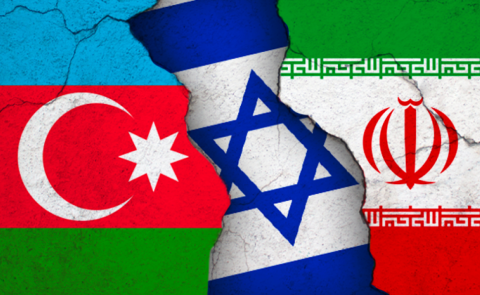
Azerbaijan Calls for 'Dialogue and Diplomatic Resolution' Between Israel and Iran

Azerbaijan and France Explore Industrial Cooperation
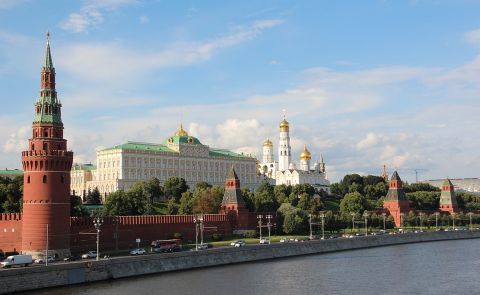
Russian Senator States Georgia Rejects Brussels’ Directives
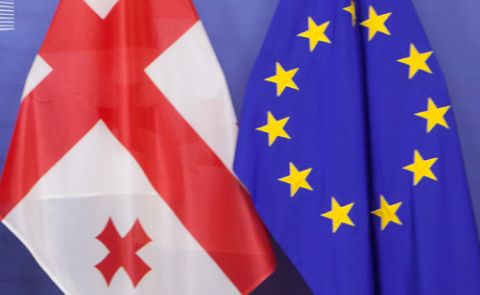
EU Ambassador Rules Out Suspension of Visa-Free Travel for Georgia

